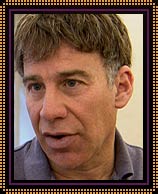 One of the few new theatrical composers and lyricists to emerge in the ’70s, Schwartz studied at Carnegie-Mellon University, where he majored in drama, and at Juilliard. He worked as a record producer for RCA Records before deciding to make a career as a songwriter. In 1969 he contributed the title song to Leonard Gershe’s play “Butterflies Are Free,” which ran on Broadway for more than 1,000 performances, and was filmed in 1972. In 1971, Schwartz had a smash hit with his rock-pop score for the off-Broadway “biblical” musical “Godspell,” which ran for over 2,500 performances in New York, and featured the hit song “Day by Day.” He also produced the Grammy-winning original cast album. Later that year, Schwartz collaborated with Leonard Bernstein on additional text for Bernstein’s “‘theater piece,” “Mass,” which was commissioned for the opening of the John F. Kennedy Center for the Performing Arts. During the early ’70s, Schwartz enjoyed more success with “Pippin” (1972), which had another agreeable song, “Magic Do,” and “The Magic Show” (1974). Each show ran for nearly five years in New York. Subsequently, he seemed to lose the magic formula. “The Baker’s Wife” (1976) closed out of town although it has since become something of a cult item, and “Working” (1978), “Rags” (1986), and “Children of Eden” (London 1991), could only manage 132 performances between them.
One of the few new theatrical composers and lyricists to emerge in the ’70s, Schwartz studied at Carnegie-Mellon University, where he majored in drama, and at Juilliard. He worked as a record producer for RCA Records before deciding to make a career as a songwriter. In 1969 he contributed the title song to Leonard Gershe’s play “Butterflies Are Free,” which ran on Broadway for more than 1,000 performances, and was filmed in 1972. In 1971, Schwartz had a smash hit with his rock-pop score for the off-Broadway “biblical” musical “Godspell,” which ran for over 2,500 performances in New York, and featured the hit song “Day by Day.” He also produced the Grammy-winning original cast album. Later that year, Schwartz collaborated with Leonard Bernstein on additional text for Bernstein’s “‘theater piece,” “Mass,” which was commissioned for the opening of the John F. Kennedy Center for the Performing Arts. During the early ’70s, Schwartz enjoyed more success with “Pippin” (1972), which had another agreeable song, “Magic Do,” and “The Magic Show” (1974). Each show ran for nearly five years in New York. Subsequently, he seemed to lose the magic formula. “The Baker’s Wife” (1976) closed out of town although it has since become something of a cult item, and “Working” (1978), “Rags” (1986), and “Children of Eden” (London 1991), could only manage 132 performances between them.
Stephen Schwartz
- "Fosse"
- "Godspell"
- "Pippin"
- "Wicked"
- Leonard Bernstein
- Bob Fosse
- Joel Grey
- Ann Reinking
- Ben Vereen
- Tony Walton
Schwartz turned his attention to the screen, and collaborated profitably with Alan Menken on the Walt Disney animated features POCAHONTAS (1995) and THE HUNCHBACK OF NOTRE DAME (1996). For POCAHONTAS, the duo won Oscars for Original Musical or Comedy Score and Original Song – “Colors of the Wind” (Schwartz was also given an ASCAP award for Most Performed Motion Picture Song) — and were nominated for their work on THE HUNCHBACK OF NOTRE DAME. In 1999 Schwartz won another Oscar for one of his songs, “When You Believe,” from the DreamWorks animated Bible epic, THE PRINCE OF EGYPT. Having successfully demoed his material for some years, in 1997 he released a compelling album on which he sang all nonshow songs, with the exception of “The Hardest Part of Love,” from “Children of Eden.”
Source: Biographical information provided by MUZE. Excerpted from the ENCYCLOPEDIA OF POPULAR MUSIC, edited by Colin Larkin. © 2004 MUZE UK Ltd.
Photo credits: Photofest

